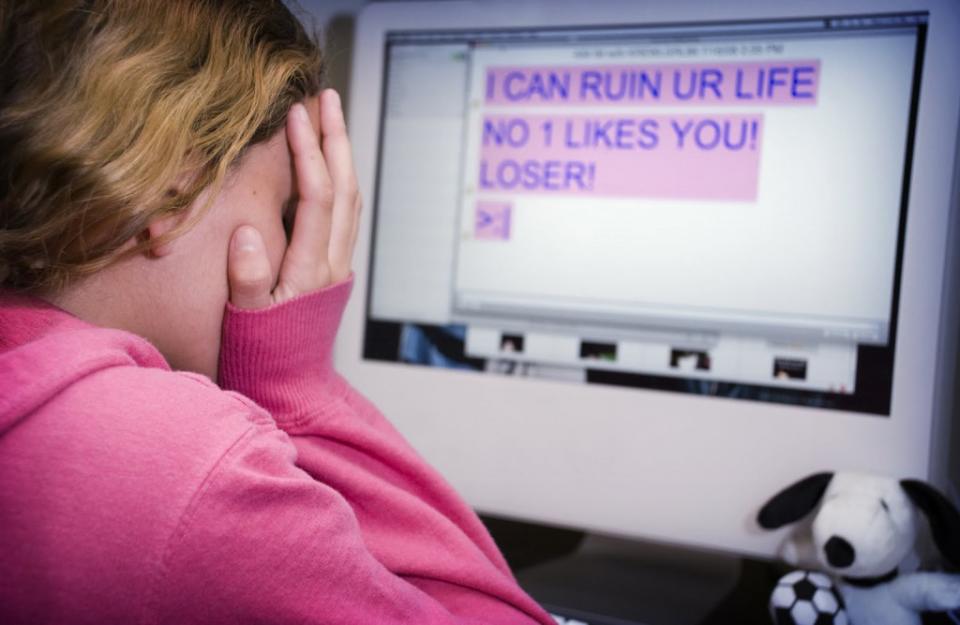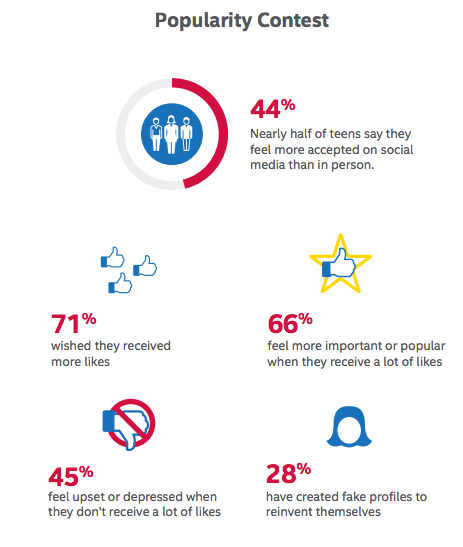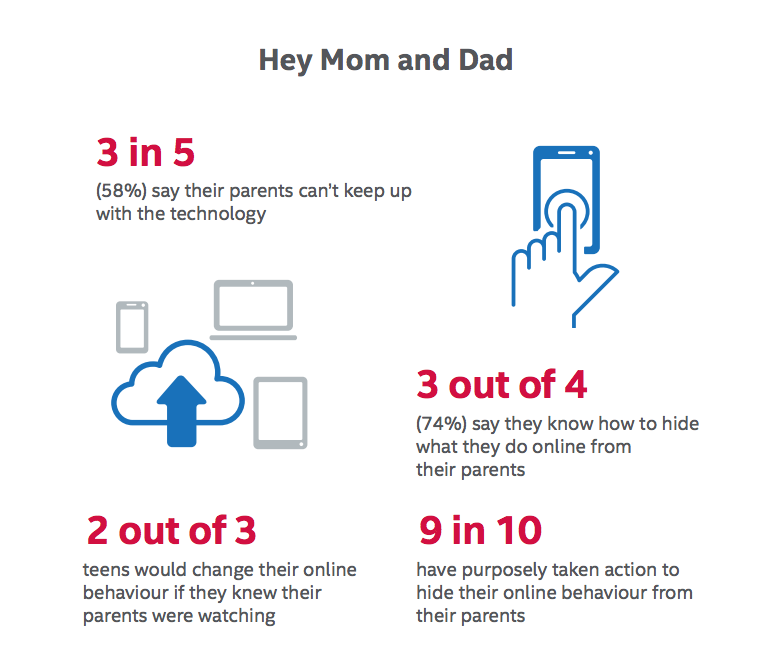McAfee study reveals 1 in 9 Singaporean Teens Have Been Cyberbullied

We previously wrote about a 2013 survey by Touch Cyber Wellness, a Singapore-based cyber wellness education group, that revealed that 1 in 3 of the latter population had been bullied online.
This year, McAfee (Part of Intel Security) has announced that 1 in 3 Singaporean teens have had experience with cyberbullying. This group includes witnessing cyberbullying (61%), having been cyberbullied (28%) or were the cyber-bully themselves (29%). This means that 1 in 9 Singaporean Teens have either been the bully or have been bullied themselves.
Image Credit: McAfee
These results were part of a study by the company’s 2014 Teens and the Screen study: Exploring Online Privacy, Social Networking and Cyberbullying in Singapore. Whether there was any difference in the way these surveys were done is uncertain. While the drop in numbers may seem heartening, numbers show that we still have a long way to go before teenagers are truly safe online.
This is the first time Singaporean youth has been included. The study was released with an infographic, covering several aspects of Singaporean teen’s online social life.
Also Read: CPF Cheongsam Lady Video: Stop the Cyberbullying, Singaporeans!
What Is Cyberbullying?
Image Credit:
To clearly define Cyberbullying, we spoke to Chong Ee Jay, Assistant Manager of TOUCH Cyber Wellness (TCW). While it may just seem to the layman to be traditional bullying done on a different platform, the new outlets online as well as anonymity actually lend to new, more vicious forms of bullying, such as online harassment, online gossiping, cyber stalking and impersonation.
What may be even more worrying that knowing that 1 out of 9 teens have been a victim of cyberbullying is that an equal portion of teens are the cyberbullying themselves. When asked about this situation, Chong had these reasons to explain why a teen would choose to be a cyberbully.
Emotional frustration and responses due to disagreements, misunderstandings or jealousy
Out of boredom or for fun – This is especially true for younger kids who are not educated or aware of the potential ill effects and consequences of cyber bullying.
Revenge – Common for children and teens who have been victimised by bullying previously and that situation was not properly resolved.
Intentional to feel powerful or in control – bullies typically like to be in control for their own egoistical purposes or internal issues and use bullying to gain control over the victim.
Why Don’t I Have Enough Likes?
As we know, social media has the ability to affect our emotional state and self-esteem. This is even more prominent in teens, who may be more vulnerable to both positive and negative reinforcement, on and offline. While 77% wished they had more likes, 45% will actually feel upset or even depressed when they don’t get enough likes.
This could cause risky behavior online in a bid to seek attention. 81% have posted or done something risky online. What makes this worse, is that 51% believe that they can eventually delete any content they choose to share, showing that teens still do not understand the eternal nature of content posted online.
Without understanding the risks involved, an emotionally-drive teen could easily put themselves in danger without even knowing it.
Image Credit: McAfee
What Can Parents Do?
With 3 in 5 (58%) teens say their parents can’t keep up with the pace of modern technology, it is easy for parents to have no control over their teens social situations, even though this is a crucial time for parents to steer teens clear of risky behaviours.
With the need for independence and freedom, especially online, teens may not be as willing to share their online activities with parents, even if they are at risk or are being cyberbullied. 3 out of 4 (74%) say they know how to hide what they do online from their parents, while 9 in 10 have purposely taken action to hide their online behaviour from their parents.
So what can parents do when they are out of touch but need to keep their teens safe from online risks? Chong suggests these few steps:
1. Spend time to talk to their children: When their children are sharing an Internet-related problem or issue, parents should listen and not dismiss the problem by giving blanket statement solutions such as “just turn off the computer and it will not happen again”.
2. Set age and child appropriate rules and guidelines for online and digital device usages: Discuss and set age and child appropriate rules and guidelines for children together. Rules could be as simple as time spent on mobile devices, monitoring the type of games and platforms accessed, or a blanket rule on revealing personal information such as contact numbers or addresses online.
3. Parents to be role models for their children: By living out a lifestyle where it is based on healthy relationships between parents and children, children will learn and understand from their parents that bullying in any form should not be the norm anywhere.
4. Proactively engaging with new media: Parents should not shy away from the newer technologies and remain their comfort zones while their children experience these new apps or media by themselves. Try to be a few steps ahead of your child in exploring the cyber world and stay connected with each other, both online and offline.
Image Credit: McAfee
“With the rapid integration of technology into the realms of business, education, and entertainment, parents can worry less if they start on a positive note when talking tech with their children.” says David Freer, David Freer, Vice President, Consumer – Asia Pacific, McAfee. “Doing so could encourage children to see their parents as being on their team and able to speak their language.”
“As McAfee’s mission is to protect consumers’ digital lives in any point of their lives, we hope that this study brings the increasingly relevant issue of online and digital safety to the forefront. We want to encourage families to re-evaluate their current behaviours and how they can continue to have a healthy and positive experience online.”
You can see the whole infographic here.
Also Read: New App Truth Allows iOS Users To Send Anonymous Texts, But No Cyberbullying Allowed
The post McAfee study reveals 1 in 9 Singaporean Teens Have Been Cyberbullied appeared first on Vulcan Post.







![teenagers-and-kids-using-cellphones[1]](https://s.yimg.com/ny/api/res/1.2/e9MM2W9TOZnYk0Z0nnbD5Q--/YXBwaWQ9aGlnaGxhbmRlcjt3PTk2MDtoPTk2MA--/https://media.zenfs.com/en-SG/homerun/vulcanpost.com/b1036cfe89a257ddf92bb59670e67f76)


